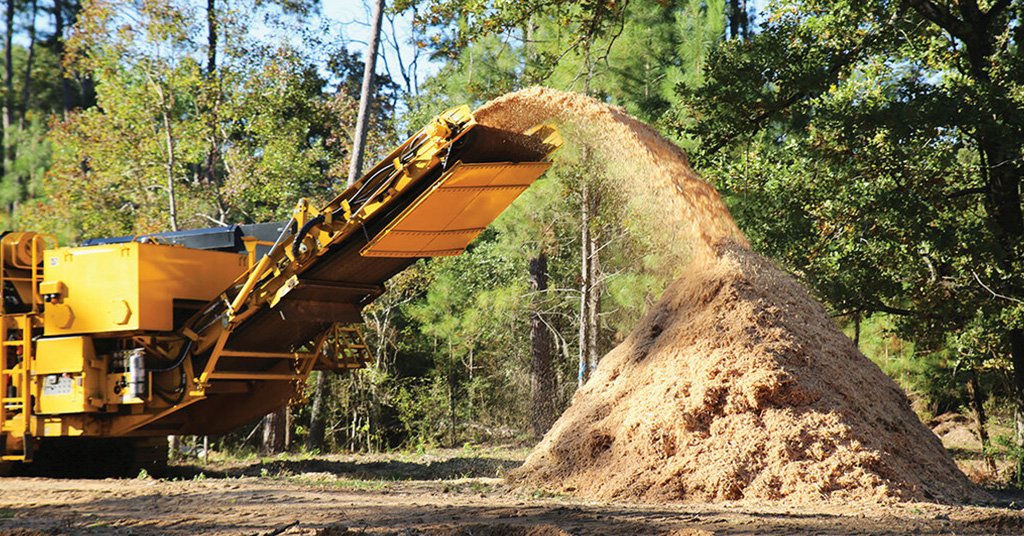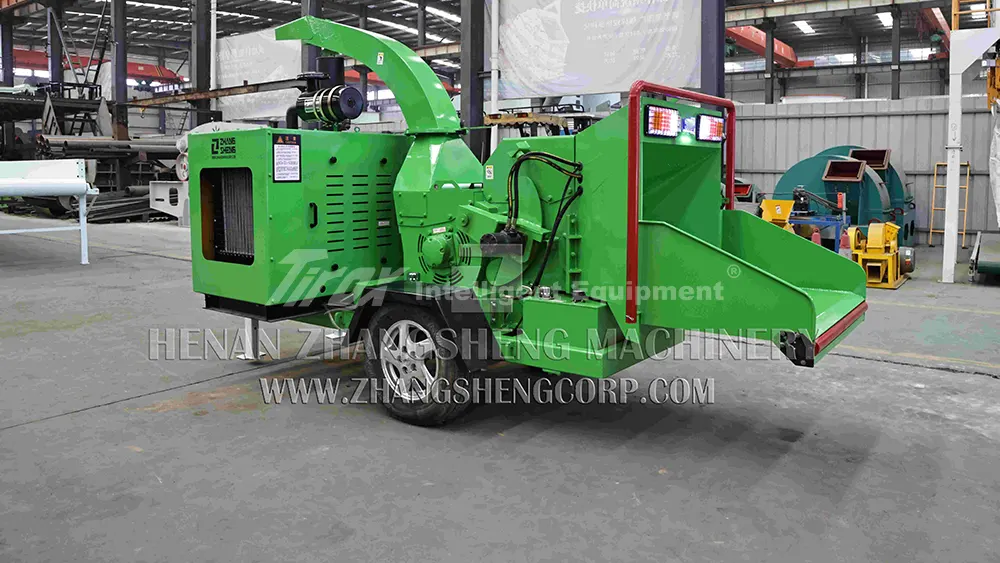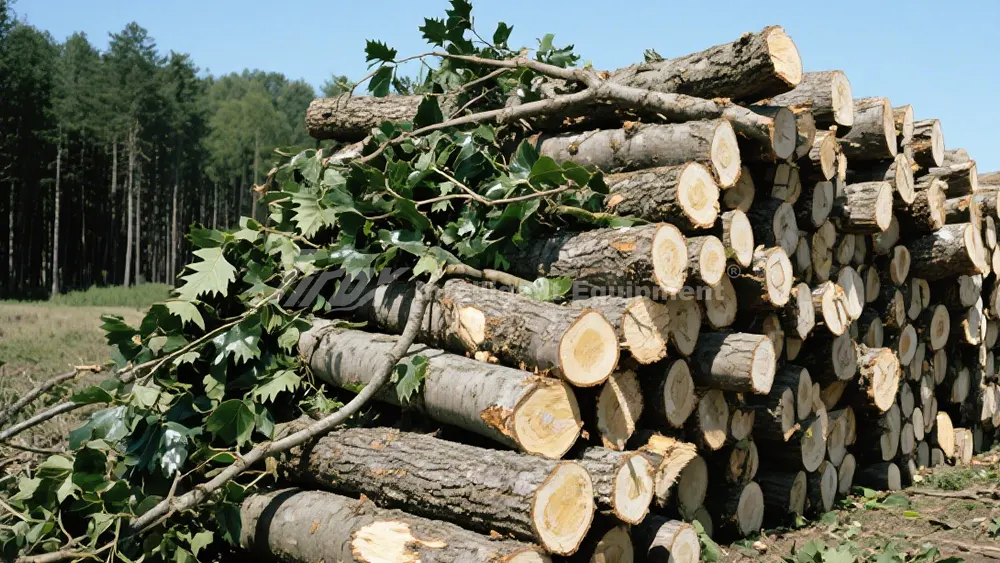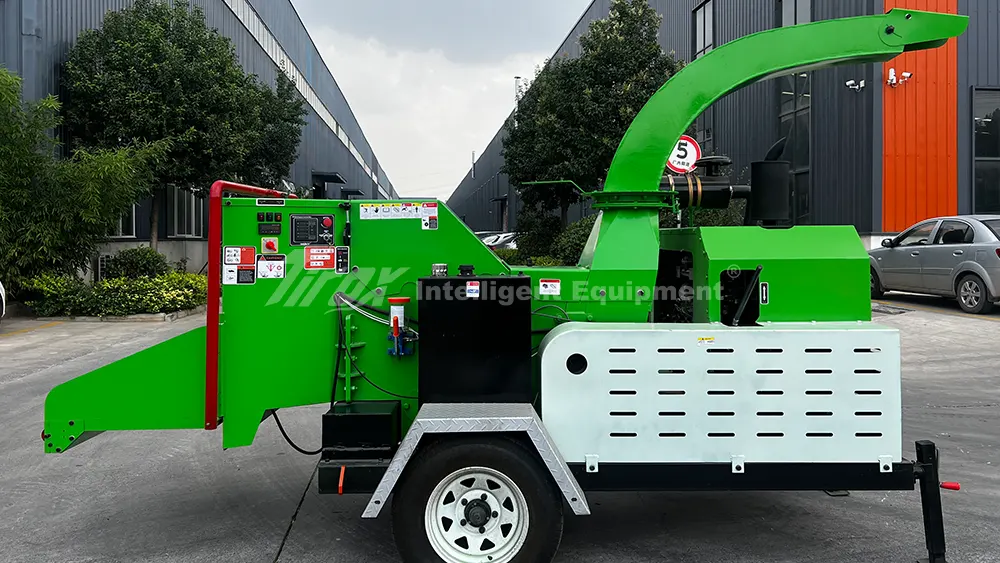Wood chippers transform bulky wood waste into smaller, manageable pieces, solving disposal challenges for industries like forestry, landscaping, and biomass energy production.
A wood chipper is a machine designed to process wood waste into uniform pieces, typically chips, for reuse or disposal, enhancing efficiency and environmental sustainability.
Understanding wood chippers is essential for industries relying on wood recycling. These machines offer practical solutions for handling wood waste, improving productivity, and supporting sustainable practices. Let’s explore their functions, types, and applications in detail.
What Is an Industrial Wood Chipper?
Industrial wood chippers are a game-changer for businesses converting wood waste into valuable resources, addressing operational challenges efficiently and sustainably.
An industrial wood chipper is a heavy-duty machine designed to process large volumes of wood waste into chips, contributing to waste reduction and resource optimization in industries.
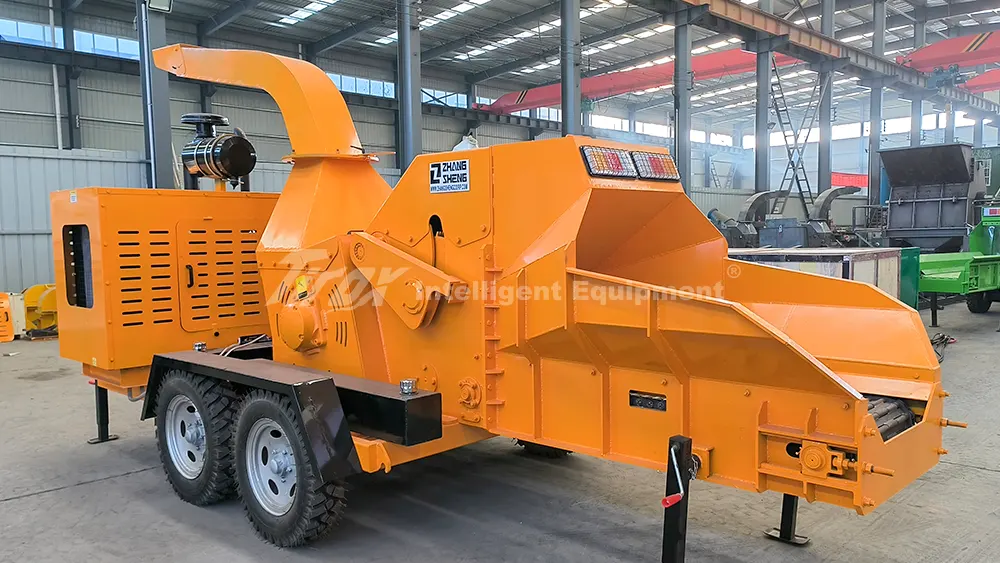
These machines consist of core components like an infeed hopper for material intake, cutting mechanisms (rotor, drum, or disc) for processing, powerful engines, discharge systems for output, and user-friendly control panels. Their robust design ensures high efficiency, making them indispensable for B2B operations. Learn more about industrial wood chippers.
How Does an Industrial Wood Chipper Work?
Industrial wood chippers simplify wood waste processing, converting bulky materials into uniform chips through efficient intake, cutting, and discharge mechanisms.
Wood chippers operate by feeding materials through an intake system, cutting them into chips using rotating blades, and ejecting the processed chips for reuse or disposal.
The process begins with material intake, where wood is fed into the hopper. Aggressive rollers guide the material to the cutting mechanism, where blades or hammers break it down. The chips then exit through a discharge system, ready for industrial applications like biomass energy or mulch production. Uniform chip size and moisture content ensure suitability for various uses. Explore more about wood chipper mechanisms.
Types of Industrial Wood Chippers?
Choosing the right wood chipper type is crucial for meeting specific operational needs, ensuring efficiency across diverse industries.
The main types of industrial wood chippers are drum chippers, disc chippers, and horizontal grinders, each suited for different materials and applications.
Drum Chippers
Drum chippers excel in handling large logs, offering high throughput and consistent chip size for biomass energy production and forestry applications.
Drum chippers use rotating drums with fixed knives to process wood, making them ideal for large-scale forestry and biomass operations.
| Advantages | Applications |
|---|---|
| High throughput and robust design | Forestry, biomass energy plants |
| Consistent chip size for industrial use | Large-diameter logs |
Disc Chippers
Disc chippers are versatile, compact machines suitable for landscaping and smaller-scale biomass production, producing finer chips for varied industrial needs.
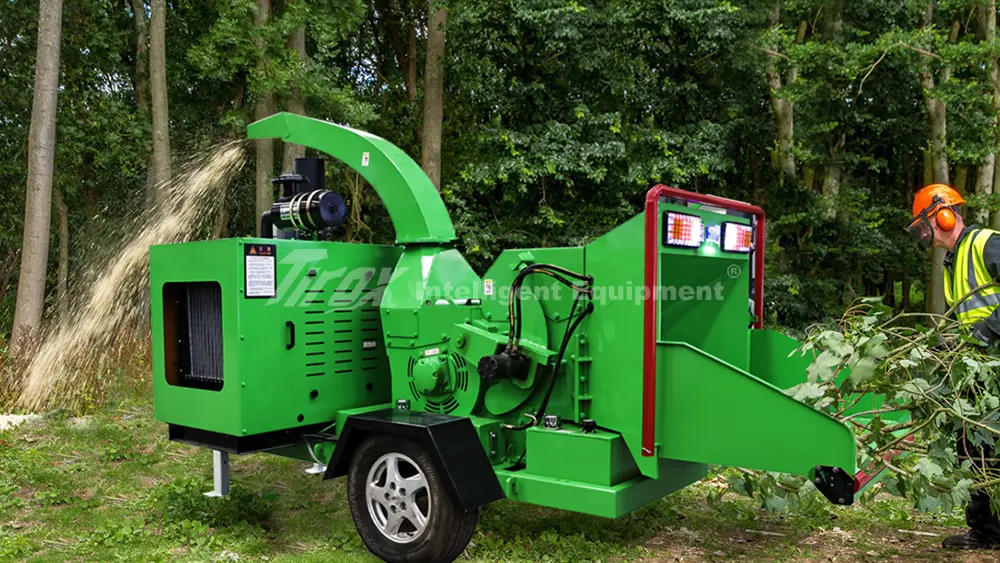
Disc chippers feature rotating steel discs with radially mounted blades, offering flexibility in chip production for mulch and biomass fuel.
| Advantages | Applications |
|---|---|
| Compact design for easy handling | Landscaping, mulch production |
| Ability to produce finer chips | Smaller-scale biomass operations |
Horizontal Grinders
Horizontal grinders handle diverse waste streams, including construction wood debris and municipal green waste, offering high-volume processing capabilities.
Horizontal grinders shred various types of wood waste with high efficiency, making them suitable for waste management and recycling centers.
Discover our horizontal grinders.
Why Are Industrial Wood Chippers Essential?
Industrial wood chippers streamline waste management and resource recovery, offering economic and environmental benefits to B2B industries.
These machines reduce waste disposal costs, generate revenue through byproducts, and contribute to sustainability by converting wood waste into usable resources.
For forestry, biomass, and waste management companies, wood chippers enhance productivity, simplify handling of materials, and meet sustainability goals. Their adaptability to diverse applications makes them a strategic asset for industrial users. Learn more about their advantages.
Conclusion
Industrial wood chippers redefine waste management, boosting efficiency, sustainability, and profitability across B2B sectors. Their versatility and innovative features make them invaluable.


